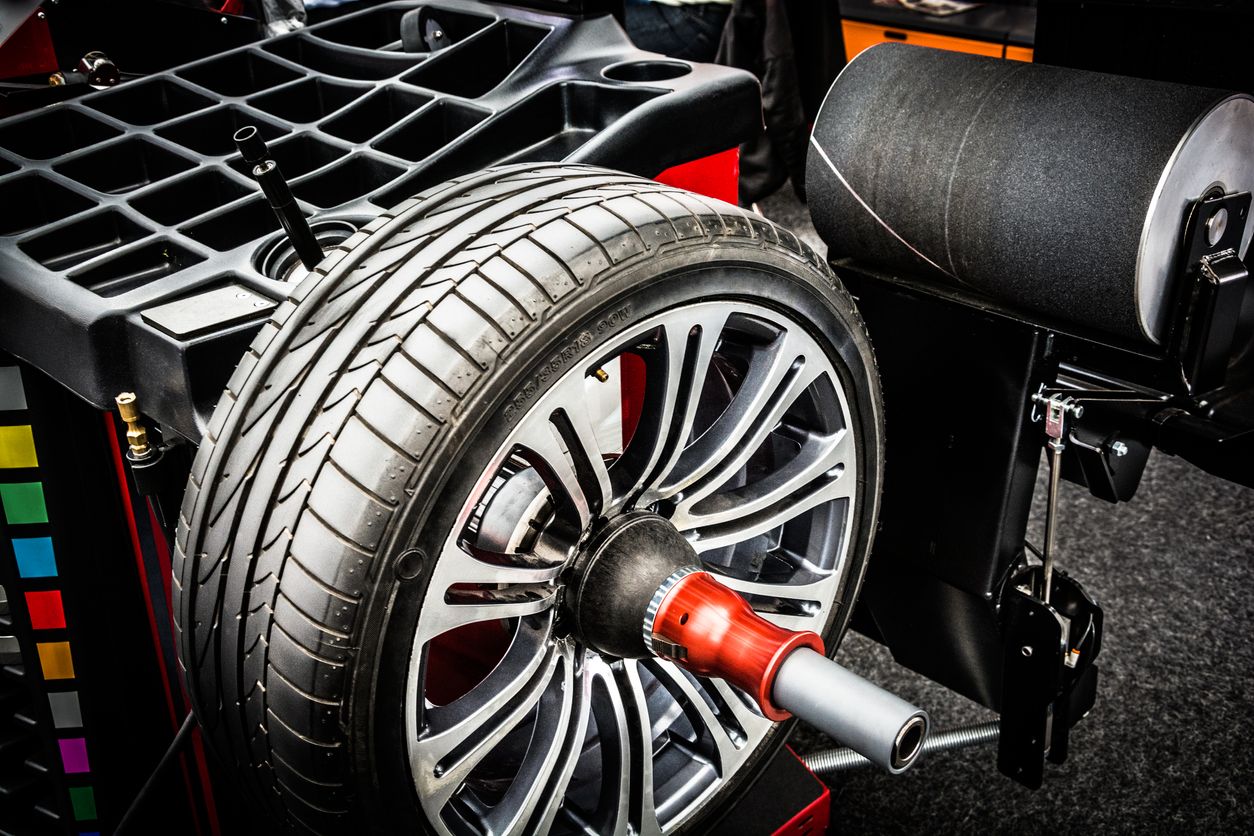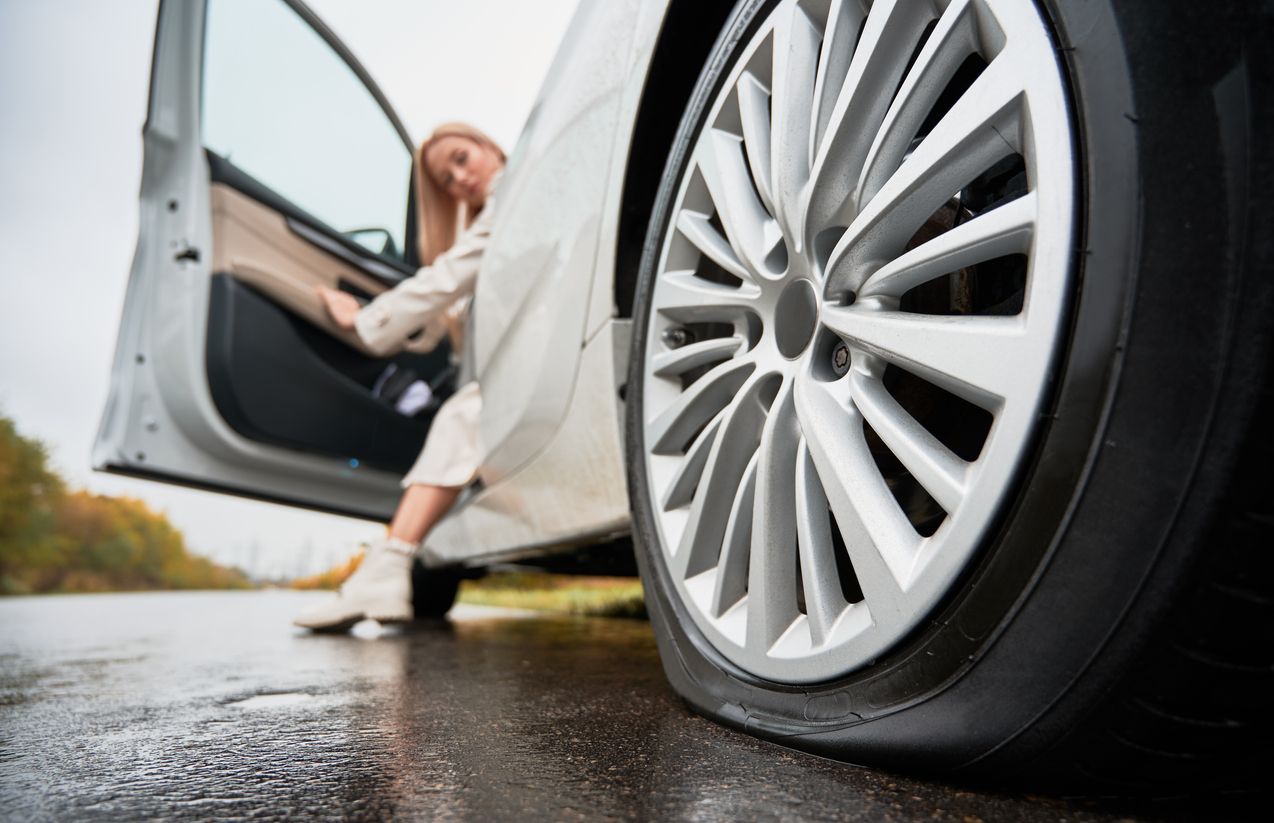What is tire balancing? And are your tires unbalanced? Read on to learn what this term means, why tires need balancing, and signs that you may have a balance issue.
What Is Tire Balancing?
Tire balancing — also called wheel balancing — fixes uneven weight distribution on the wheels. Wheels that aren’t balanced can cause vibration, excessive tire wear, damage to the suspension, and other issues.
During a tire balance service, a trained technician mounts your wheel and tire assembly onto a tire balancing machine. The machine spins the wheel and tire assembly to determine the amount of imbalance. Using that information, the technician can install the correct wheel weights to properly balance the wheel and tire.
Often, wheel balancing and alignment happen during the same visit, but they’re not the same service. Alignment refers to adjusting your vehicle’s steering and suspension angles; it does not involve balancing the tires or wheels.
Why Do Tires Need Balancing?
Sure, tire balancing sounds important, but why do you actually need this service for your vehicle? Proper balancing of your tires may offer many different benefits, including
- :A smoother ride
- Lesswear and tear on the tires
- Less strain on the drivetrain
- Better gas mileage
- Fewer noises and vibrations
How Do Tires Get Out of Balance?
What causes tires to become unbalanced? Uneven tire wear or loss of a wheel weight after an impact are often the most common culprits. Also, if you leave your car parked for a long time without moving it, flat spots might appear on the tread's contact patch, leading to a vibration at road speeds.
Signs You Need Your Tires Balanced
If the tires are unevenly worn, it might be a sign that your tires need to be balanced. The same may hold true if you notice vibration in the steering wheel, floorboard, or seat.
Where your car is trembling can tell you whether the front or back wheels need to be balanced. Your front tires could be the culprit if the steering wheel is vibrating. But if you feel vibration in the seats, the back tires likely need to be balanced. Other factors may also lead to a vibration. If you notice any of the signs above, it's best to have your vehicle checked by an expert technician.
When Should You Get Your Tires Balanced?
If you detect any signs that your tires need to be balanced, you definitely should make an appointment to get the situation checked out by a trained technician. But generally, you should have your car’s tires rotated and balanced every 5,000 to 6,000 miles, or as recommended by the manufacturer. Other times to get your tires balanced include:
- During tire rotation service
- During flat tire repair services
- During regularly scheduled maintenance visits
How Long Can You Drive On Unbalanced Tires?
You should have your vehicle checked as soon as you notice a vibration. Unfortunately, unbalanced tires won’t fix themselves. A trained technician needs to address the problem.
Get Your Tires Balanced at Firestone Complete Auto Care
Having properly balanced tires can prevent uneven tread wear and suspension problems down the road. Get ahead of the issue by scheduling an appointment online or visiting your local Firestone Complete Auto Care for wheel balancing today.



